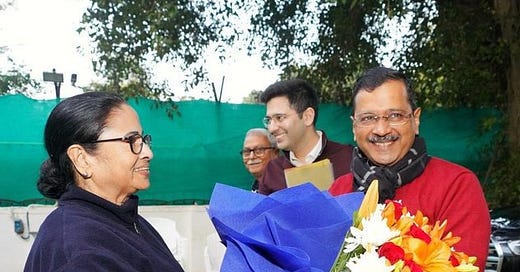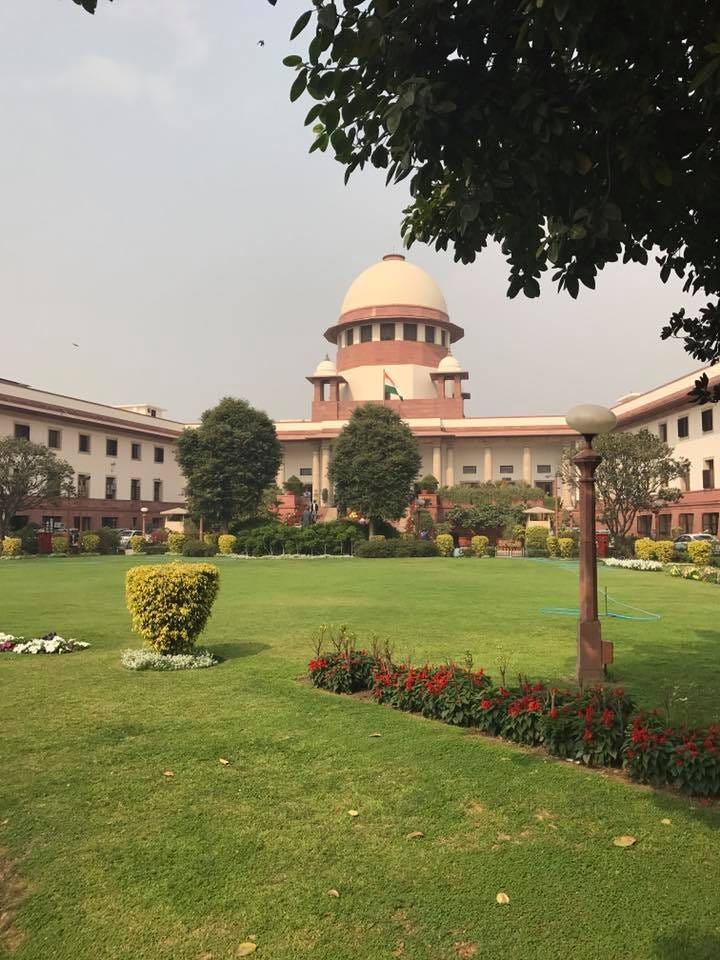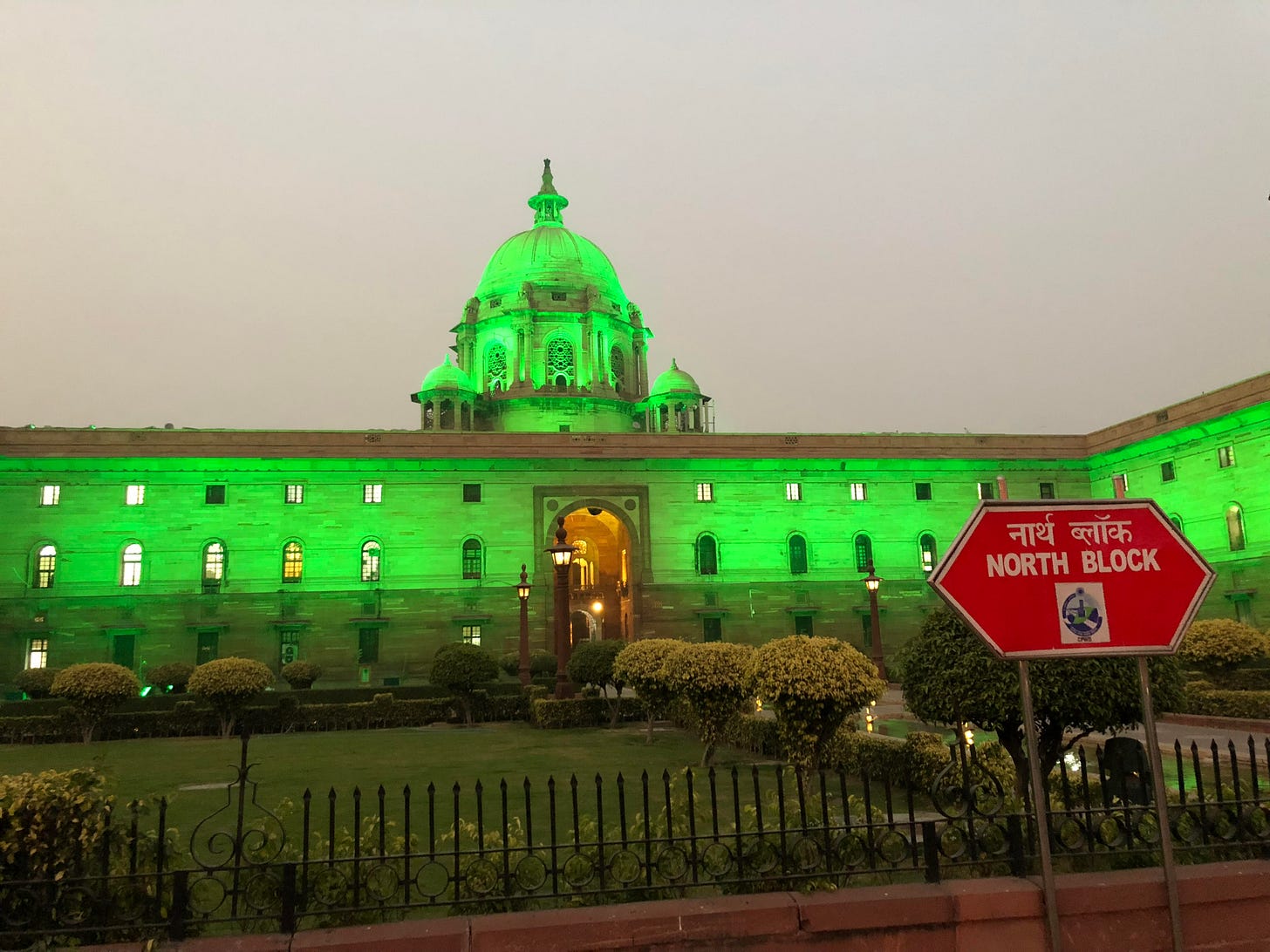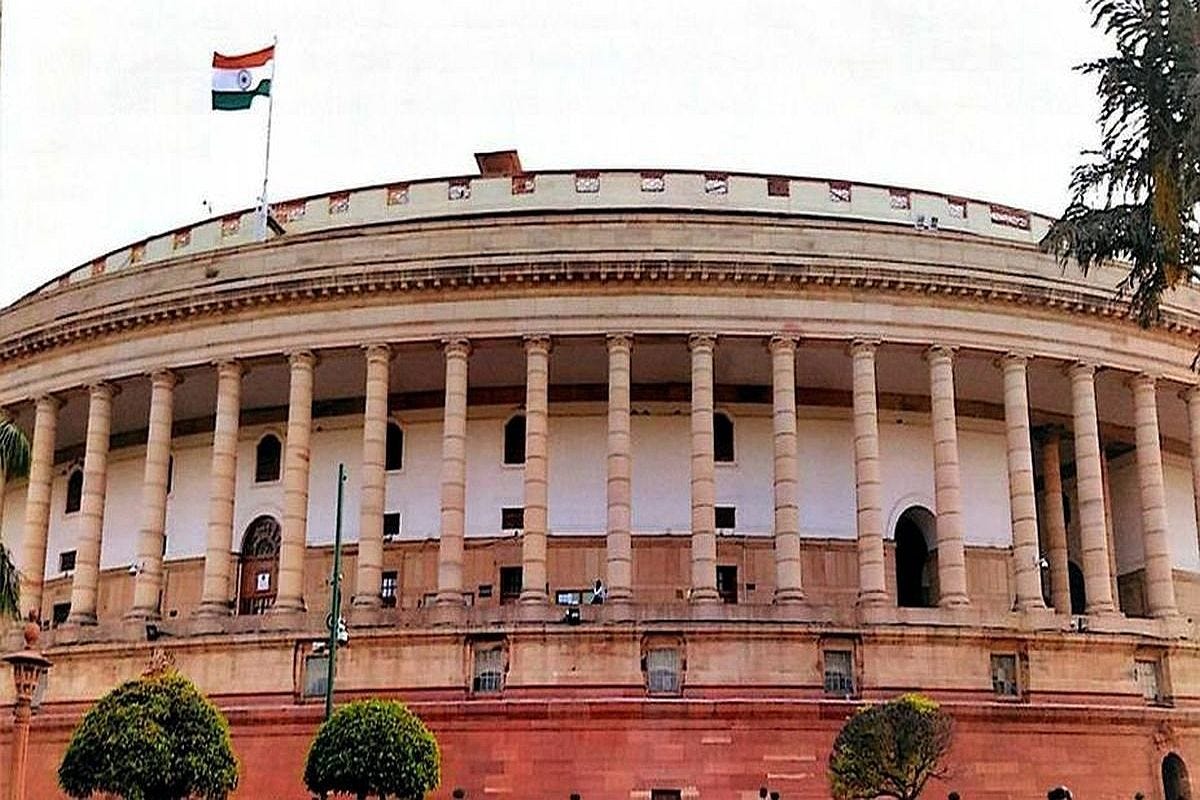Arvind Kejriwal: Fresh ED Summons for December 21 in Delhi Excise Case
Kejriwal-ED Summons Saga— Act 2: Constitutional Questions Curated, in Light of Fresh Legal Process
Escalating Tensions: Kejriwal Faces Renewed ED Summons in Delhi Excise Case
In today evening's development that has further stirred the political cauldron, the Enforcement Directorate (ED) issued fresh summons to Delhi Chief Minister, Shri Arvind Kejriwal, for questioning on December 21 in connection with the Delhi Excise Policy-linked money laundering case. This move comes after Mr. Kejriwal did not comply with the previous summons slated for November 2, describing them as “vague, motivated, and unsustainable in law”. Complicating matters, Mr. Kejriwal had publicly declared his plans to enter a Vipassana Yoga retreat from December 19 to 30, immediately after the conclusion of the INDIA bloc meeting in New Delhi, thus potentially conflicting with the ED's scheduled interrogation.
AAP MP: Case “Fake and Bogus”; Lawyers will Determine Response
Amidst the unfolding political drama, AAP Rajya Sabha MP from Punjab, Sandeep Pathak, has vehemently dismissed the excise policy case as "fake and bogus," casting serious aspersions on the motives behind the summons. He has also indicated that the legal team is meticulously reviewing the ED's summons to determine the appropriate course of action. This review is particularly significant in light of Arvind Kejriwal's scheduled Vipassana session from December 19, which coincides with the dates set by the ED.
The political arena is abuzz with speculation about Mr. Kejriwal's potential response to the latest summons. Observers are keenly awaiting to see if he will comply with the ED's request, propose an alternate date after December 30, or issue another letter requesting further clarification regarding the nature of his summons – whether he is being summoned as a witness, a suspect, or an accused, and whether in his personal capacity, as Chief Minister of GNCT Delhi, or as National Convenor of AAP.
As of now, it appears that the ED has not yet responded to Mr. Kejriwal's previous queries, choosing instead to issue a new summons, reportedly under section 50 of the Prevention of Money Laundering Act (PMLA), 2002. This development marks a crucial point in the ongoing political narrative, holding the potential to significantly sway public opinion and influence political dynamics within India.
Enforcement Directorate's Initial Summons
The previous summoning of Delhi Chief Minister Arvind Kejriwal by the Enforcement Directorate (ED) for a scheduled appearance on November 2, 2023, had captured public and media attention alike. In response to these events, our earlier article had explored the nuances of the Prevention of Money Laundering Act (PMLA), 2002, while cautiously steering clear of the intricate details of the so-called Delhi Liquor Scam. However, the situation evolved with the emergence of Mr. Kejriwal's letter to the ED, now a matter of public record, unveiling new facets of this case. In his response, Mr. Kejriwal voiced his objections to the summons, which he critiqued as legally baseless, and raised several pertinent inquiries, culminating in a request for the ED to “recall” the disputed summons.
Instead of complying, Mr. Kejriwal had devoted that day to campaigning for his party's candidates in Madhya Pradesh.
The sections that follow are excerpts from our previous article, providing further context to this unfolding narrative.
Enforcement Directorate's Likely Response?
The course of action the Enforcement Directorate will adopt in response to Arvind Kejriwal's letter remains a subject of speculation. Will they engage in a formal dialogue or simply proceed to issue new summons? This unanswered question keeps the narrative open as we await the unfolding events. including any Writ Petitions that Mr Kejriwal may choose to file. In line with the ongoing discussion and our preceding article, we will, however, now briefly analyse the issues raised by Mr Kejriwal, which he articulates in his correspondence with the ED, and their broader implication.
As a matter of proactive disclosure, we wish to clarify that we are not professionally trained in legal matters. For comprehensive guidance or advice, we recommend consulting a qualified legal practitioner.
The Constitutional Backdrop
It is critical to acknowledge that the Supreme Court's three-judge bench comprising Justice A.M. Khanwilkar, Justice Dinesh Maheshwari, and Justice C.T. Ravikumar had recently upheld the constitutional validity of the Prevention of Money Laundering Act (PMLA), 2002, with their decision in the Vijay Madanlal Choudhary case (2022 SCC OnLine SC 929)1. Nevertheless, the issues Mr Kejriwal raises are of considerable importance. These concerns are pertinent not solely to the circumstances of the instant case but also reflect on the wider procedural aspects regarding the issuance of summons by the ED following the registration of an Enforcement Case Information Report (ECIR). Judgments have recognized the ECIR as an internal document of the ED, akin to an FIR under the CrPC, yet its details are customarily kept confidential and not disclosed to those implicated, whether as suspects, witnesses, or the arrested, in relation to the investigation.
Balancing Enforcement with Fundamental Rights
Mr Kejriwal's submissions, while ostensibly simple, point to a path towards intricate constitutional deliberations, particularly around Fundamental Rights, foreshadowing substantial judicial scrutiny and potentially pivotal interpretations by the Supreme Court of India. The Enforcement Directorate, armed with the power to summon under Section 50 of the Prevention of Money Laundering Act (PMLA), views the act of summoning individuals with pertinent knowledge of a case as an essential tool for advancing investigations. Yet, this procedural step can meet with formidable constitutional challenges when those summoned evoke concerns related to Fundamental Rights. These confrontations are not mere legal formalities; they go to the heart of our constitutional fabric, influencing the very dynamics between the enforcement authority and the tenets of liberty and due process enshrined in the Constitution.
Clarifying the Capacity for Summons
a.) Summoned in What Capacity?
Mr. Kejriwal's first query addresses the basic need for clarity on the capacity in which he has been summoned— in personal capacity, or as Chief Minister of Delhi or as National Convenor of AAP. This is not an isolated concern but one that resonates in various legal contexts, where the summoned individual is uncertain whether to respond as an individual, a business entity representative, or an office-bearer in a political party or Government.
b.) The Enforcement Directorate's Stance and Rationality of Inquiry
The Enforcement Directorate might argue the irrelevance of such distinctions, considering the person's singular identity across different capacities. However, they may also contend that the summons covers all potential roles related to the inquiry.
c.) Importance of Specificity
The logic behind Mr. Kejriwal’s request for specificity is rooted in the premise of providing coherent and informed responses. Knowing the exact capacity could significantly dictate the relevance of the information provided and the preparation needed beforehand. Legal experts maintain that it stands to reason that in the spirit of an efficient and fair investigation, the ED should indeed specify the capacity in which an individual is summoned to facilitate focused and accurate testimonies.
Witness vs. Suspect: The Right to Know
a.) The Crux of the Matter
The second point Mr. Kejriwal raises strikes at the heart of the issue, questioning the nature of his summons: Is he being called as a witness or a suspect? This distinction significantly affects the approach and rights of the individual in question, especially in the context of the progression from being a suspect to an accused.
b.) Constitutional Safeguards and Implications
The analysis of this concern must be navigated through the lens of Article 20(3) and Article 21 of the Indian Constitution, which safeguard against self-incrimination and ensure the right to life and personal liberty. The ambiguity surrounding the status of the individual summoned may inadvertently lead to self-incriminating testimony.
c.) Evidentiary Weight and Legal Obligation
The gravitas of a statement recorded by ED officials under the PMLA, as opposed to one recorded by the police under section 161 CrPC, cannot be overstated. The former carries substantial evidentiary weight and is not easily retractable. Coupled with the legal mandate to provide truthful responses, the summoned individual may potentially be enmeshed in a predicament if unaware of their status in the investigation.
d.) The Need for Transparency
Therefore, it is essential for the Enforcement Directorate to explicitly define the role of the individual being summoned, making clear if they are viewed as a witness or a suspect. Furthermore, it is incumbent upon them to duly notify the individual if there is a change in their status from a witness to a suspect. This level of transparency is not just a procedural formality; it is a constitutional mandate that reinforces the tenets of justice and equitable questioning as embodied in the Indian Constitution.
Right to Remain Silent: the US Constitutional Guarantee vs. India’s
a.) Legal Notification: Witness or Suspect
The contention, as discussed before, revolves around the necessity for the Enforcement Directorate (ED) to clarify an individual's status upon summoning – as a witness or a suspect. This distinction is pivotal as it directly impacts a person's ability to exercise their Fundamental Rights, particularly in situations where the questions posed could lead to self-incrimination.
b.) Interpretational Differences and Fundamental Rights
The interpretation of the term 'witness' by the Supreme Court of India, as highlighted, diverges significantly from its interpretation by the Supreme Court of the USA. In India, the term 'witness' is confined to the phase of trial, not extending to investigations or enquiries. This stands in contrast to the American judicial approach, where an individual can invoke the Fifth Amendment – the right against self-incrimination – at any stage, whether during trials, investigations, or even congressional hearings.
c.) International Comparisons and Implications
The comparison with American jurisprudence sheds light on the broader spectrum of rights available to an individual facing legal scrutiny. While in the USA the right to avoid self-incrimination can be invoked from the outset, in India, this right emerges more prominently during the trial phase, leading to potential vulnerabilities during investigations.
d.) Recommendation for Clarity
In the context of Indian jurisprudence and the operation of the PMLA, legal experts suggest that the ED should adopt a transparent approach by formally informing individuals of their status in the investigation. This practice would not only uphold the principles of Fundamental Rights but also foster a fairer and more just administration of law.
Ensuring Adequate Disclosure for Effective Compliance
Mr. Kejriwal's insistence on obtaining explicit details concerning the file number cited in his summons underscores a critical issue in the current procedural approach, where the lack of comprehensive information effectively leaves the summoned party deciphering the case particulars as if they were an unknown language. It is vital that individuals are furnished with sufficient context regarding the Enforcement Case Information Report (ECIR) to equip them to offer precise and informed responses during the investigation. This is not merely about transcending the vagueness of terms such as the 'Delhi Liquor Scam' but about enabling the individual to engage with the inquiry process in a manner that is both effective and respectful of due process. Thus, it is incumbent upon the Enforcement Directorate, the communication contends, to provide a detailed exposition of the allegations and concerns at hand, thereby ensuring a more streamlined and focused investigatory process.
“Fishing and Roving Inquiries”: Judicial Precedents
a.) Defining the Parameters of Inquiry
Investigative authorities are mandated to conduct inquiries with a clear and defined purpose. An inquiry is expected to stem from a specific lead or evidence, giving rise to legitimate suspicion necessitating further investigation.
Case Reference: The Supreme Court and "Fishing and Roving Inquiries"
Judicial Critique of Unfocused Inquiries The concept of “fishing and roving inquiry” was notably addressed in the Supreme Court's ruling regarding Captain Satish Sharma's review petition. This case, involving the discretionary allocation of petrol pumps and LPG agencies by the Union Minister, became a benchmark in defining the limits of investigative reach.
Citation of Precedent The seminal case is documented as: Common Cause, A Registered Society vs Union Of India And Others, 1996 AIR 3081, 1996 SCC (4) 33.
Supreme Court's Concerns The Apex Court, in this instance, took issue with an investigation that resembled a 'fishing and roving inquiry'. Such an investigation, characterized by a lack of specific allegations, was deemed unacceptable by the Court as it did not conform to the principles of a targeted and justifiable probe.
b.) Precedent of Specificity
Implications of the Captain Satish Sharma Case The verdict in Captain Satish Sharma's case established a critical legal standard: inquiries and investigations must not be indiscriminate or unfounded and should always be based on concrete allegations or evidence.
c.) Guarding Against Arbitrary Probes
Safeguarding Individual Rights The Supreme Court’s insistence on specificity acts as a bulwark against arbitrary investigations, protecting individuals from unwarranted harassment and preserving constitutional rights such as privacy and protection against self-incrimination.
d.) Clarity and Fairness in Enforcement
Enforcement Directorate's Obligations The Enforcement Directorate (ED), legal experts opine, is bound by these judicial principles to avoid speculative and expansive inquiries. Adherence to these guidelines by the ED is not just a legal requirement but also a measure of ensuring fairness and respect for the due process of law.
The Bounds of Inquiry and Constitutional Rights
a.) Implications for Constitutional Protections
Allowing an unfettered "fishing or fishing and roving enquiry" indeed risks violating constitutional safeguards. Such a practice could enable arbitrary or discriminatory actions by enforcement officers, which would be contrary to Article 14 of the Indian Constitution, guaranteeing equality before the law and equal protection of the laws.
b.) Upholding Article 14
Article 14 embodies the principle that like should be treated alike without any discrimination. This principle is fundamental to ensuring that investigations are conducted impartially and without prejudice. By confining inquiries to specific allegations based on credible information, the law ensures that all individuals are subject to the same legal standards and processes.
c.) The Necessity of Defined Guidelines
The requirement for strict guidelines during an investigation ensures that every individual, whether a witness, a suspect, or an accused, is questioned within the scope of clearly defined legal parameters. This protects individuals from being subjected to a broad, invasive search for incriminating evidence unrelated to the matter at hand.
d.) Legal Framework for Enforcement Conduct
A structured and precise set of questions tailored to the pertinent facts of the case prevents the possibility of arbitrary questioning. It ensures that the inquiry remains within the legal confines and does not deviate into areas that are not substantiated by evidence, which could otherwise lead to a violation of rights and abuse of power.
e.) Judicial Oversight and the Role of Courts
Courts play a critical role in ensuring that enforcement agencies like the ED conduct their investigations within the bounds of the law. Judicial oversight acts as a check against potential overreach, ensuring that the powers of the investigating agencies are exercised responsibly and justly, respecting the constitutional mandate of equality and protection of individual rights.
The Imperative for Judicial Clarity on Procedural Matters
The conundrums faced by individuals summoned by investigative agencies, particularly in the context of politically sensitive cases, often lead to fundamental questions of law that impact the very framework of criminal jurisprudence and the interpretation of constitutional rights.
a.) The Need for Comprehensive Legal Interpretation
High Courts and the Supreme Court of India have grappled with similar issues in the past. However, the limelight on a high-profile political case offers an impetus to seek a comprehensive legal interpretation that could set a precedent for future cases, eliminating ambiguity in legal proceedings.
b.) Political Allegations and Legal Precedents
Politically charged cases, like the one involving Manish Sisodia, invariably come under intense scrutiny. The allegations of political motivation behind such cases make it paramount for the judiciary to establish clear, unbiased precedents that can withstand any perceptions of political interference. An expeditious and unequivocal judicial response in such high-stakes matters is crucial for maintaining public confidence in the legal system.
c.) Judicial Expediency and Due Process
The need for an early and authoritative adjudication by the Supreme Court is not just about bringing clarity to the legal questions at hand; it is also about reinforcing the due process of law. When cases of this nature linger without clear judicial guidance, they risk undermining the principles of fair trial and due process enshrined in the Constitution.
d.) A Higher Judicial Mandate for Transparency
It falls upon the Supreme Court, the apex judicial authority, to provide definitive answers to these procedural and constitutional queries. By doing so, the Court would not only dispense justice in the individual case but also enhance the transparency and predictability of the legal process. This is vital for ensuring that the law is applied equally and impartially to all, irrespective of their status or political affiliation.
Summing Up
In conclusion, the complex legal issues raised by Mr. Kejriwal, and those in similar circumstances, highlight the importance of adhering to a due process that is fair, just, and equitable under the Indian legal framework. The situation at hand, with its intertwining legal and political dimensions, emphasizes the need for all parties, including the Enforcement Directorate (ED) and Mr. Kejriwal, to rigorously uphold the principles of justice and the rule of law. It's imperative that every action taken in this context is transparent, accountable, and consistent with the democratic ethos and constitutional mandates of India.
This approach is not only vital for the individuals immediately involved but also plays a crucial role in maintaining public confidence in the judicial system and the political landscape of the country. Ensuring that justice is administered in a manner that is unbiased and respects the rights of all parties will reinforce the integrity of India's legal institutions and affirm the nation's commitment to the fundamental principles of democracy.
However, a Special Bench has been constituted to hear the review petitions against the 2022 judgment in the Vijay Madanlal Choudhary case, which consists of Justice Sanjay Kishan Kaul, Justice Sanjiv Khanna, and Justice Bela Trivedi










Is the Doomsday waiting for him?